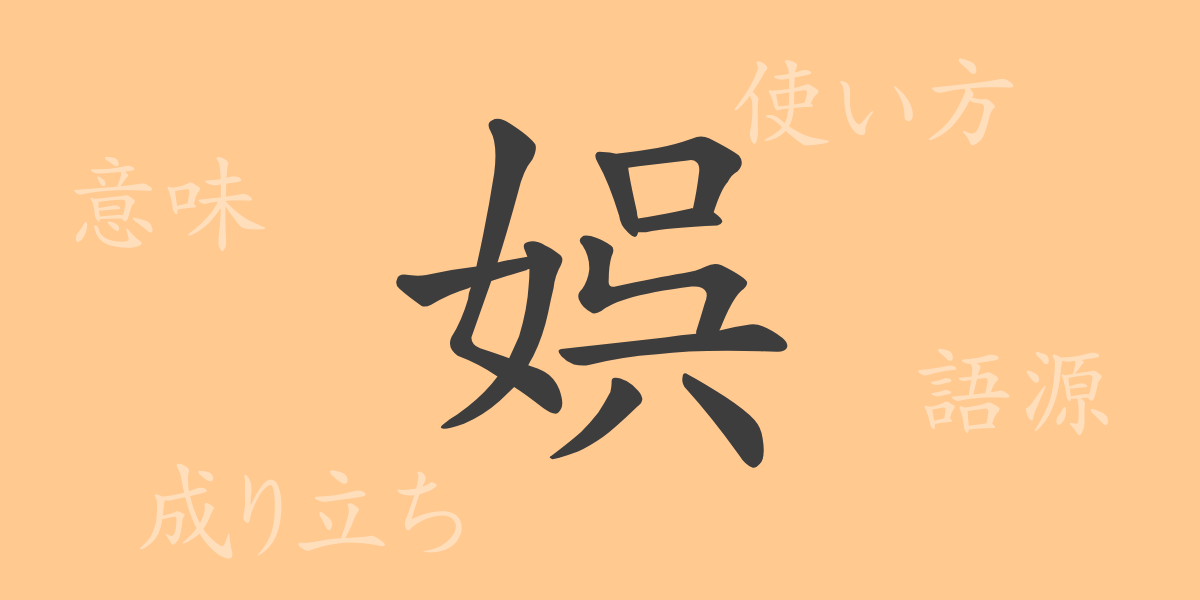The beauty of the Japanese language is reflected in its characters. Each kanji character carries deep meanings and history, and “娯” (ご) is no exception. This article explores the origins, meanings, and usage of the kanji “娯,” along with idiomatic expressions and proverbs. Let’s delve into the world of “娯” and discover its significance in representing the importance of entertainment in modern life.
Origins of 娯 (Etymology)
Understanding the origins of the kanji “娯” (ご) is the first step to appreciating its charm. “娯” has its roots in ancient China, originally derived from a pictogram depicting a woman dancing. By combining the elements for “woman” and “hand,” the character came to signify enjoyment and amusement. This historical background enriches the meaning of “娯” as a symbol of pleasure.
Meanings and Usage of 娯
The kanji “娯” (ご) means “to enjoy” or “to entertain.” It is primarily used in the word “娯楽” (ごらく), which refers to leisure and entertainment. For instance, “娯楽施設” (ごらくしせつ) means leisure facilities or amusement parks, places where people go to have fun. “娯楽番組” (ごらくばんぐみ) refers to entertainment programs on television or radio.
Readings, Stroke Count, and Radical of 娯
To understand “娯” (ご) correctly, it’s important to know its readings and structure.
- Readings: The on’yomi (音読み) is “ゴ” (ご), and there is no kun’yomi (訓読み).
- Stroke count: “娯” is composed of 10 strokes.
- Radical: The radical is 女部 (おんなへん), indicating it is related to women.
Idioms, Phrases, and Proverbs Using 娯
Expressions containing “娯” (ご) reflect its meaning of enjoyment. For example, “娯楽映画” (ごらくえいが) refers to popular, entertaining films, while “娯楽文化” (ごらくぶんか) encompasses the culture and customs related to entertainment. These terms are frequently used in everyday conversations and media.
Summary of 娯
The kanji “娯” (ご) symbolizes the world of entertainment, an essential part of our daily lives. From its origins to its meanings and usage, “娯” is deeply intertwined with Japanese life. Through this article, we hope you have gained an understanding of the historical and cultural value of “娯,” and a renewed appreciation for the importance of entertainment in daily life.

























